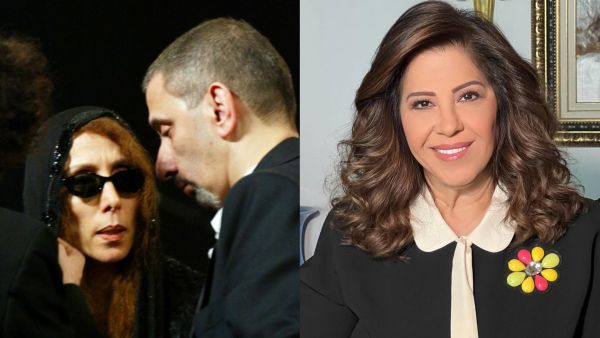Select Language:
Shock and sorrow have swept through the Arab world following reports of the sudden passing of Ziad Rahbani. Internet users circulated a video featuring renowned Lebanese scientist Laila Abdel Latif discussing the “death” of the celebrated Lebanese artist Ziad Rahbani, sparking widespread debate and concern across social media platforms. This clip quickly went viral, reigniting questions about his demise and eliciting a wave of sadness among his fans and followers in Lebanon and beyond.
The artistic communities in Lebanon and the broader Arab region were deeply affected and mourning the loss of Ziad Rahbani, the talented singer and playwright son of the legendary Fairuz. Fans who admired his work viewed him as a source of inspiration. Media outlets reported the tragic news, which reportedly caused Fairuz a profound mental breakdown upon hearing it—highlighting her close artistic bond with Ziad, who was her core supporter during many of her most pivotal musical moments. His contributions are still fondly remembered across the Arab world.
Laila Abdel Latif, often dubbed the “Lady of Predictions,” is a controversial figure in the Arab sphere, known for her provocative statements blending art with political commentary. Some believe her predictions have occasionally manifested in reality, involving events like bombings, resignations, and natural calamities, while others view her forecasts as media endeavors to attract attention.
Born into a family immersed in the arts on January 1, 1956, Ziad Rahbani was raised in a culturally rich environment. His mother, Fairuz, was married to artist Assi Rahbani, and their upbringing nurtured his innate talent and vision. Today, he is recognized as a pioneering force in Arab music and political theater, blending authentic Oriental maqams with jazz and Western musical influences in a style that made him unique. His theatrical works extended beyond mere comedy or social critique—they dived deeply into political and social issues, often employing satire to provoke thought about Lebanese suffering and societal struggles.
It is widely believed that Ziad composed and produced timeless masterpieces for his mother, including songs like “Kifak Inta,” “Ala Hadeer El Bosta,” and “Salamli Aleih,” which remain popular across the Arab world. Beyond music, he wrote and directed plays that became integral to Lebanese culture, characterized by candor and boldness in tackling sensitive political and social topics.
His sudden departure marked an irreplaceable loss to Arabic music and contemporary theater. The grief extended beyond his immediate circle, affecting friends, colleagues, and admirers who saw him as a beacon of artistic innovation and bravery. Following the news, there was heightened speculation about Fairuz’s health, with many expressions of concern for her well-being. She is revered not only as an iconic singer but also as a cultural and musical legend, holding a cherished place in the hearts of art lovers. The passing of her son has prompted reflections on their family bond, their artistic journey together, and the profound impact they have had on Arab arts and culture. Their legacy continues to inspire and resonate with fans, who remain devastated by this profound loss.







